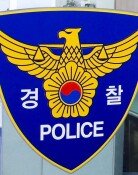Math Section on College Entrance Test to Stay Hard
Math Section on College Entrance Test to Stay Hard
Posted March. 31, 2009 10:48,
This years Collegiate Scholastic Aptitude Test will be similar to last years, meaning the math section will be difficult.
Last year, the highest standard score of math A was 154 points and math B 158, much higher than those of Korean (140) and English (136). Compared to 2007 (comparison with last years scores is impossible since the grading system was applied exceptionally), the standard score for math A increased nine points, and B 18. If both math sections are difficult this year, they will serve as a standard to find better students even among those in advanced levels.
The Korea Institute of Curriculum and Evaluation last year made math B more difficult than A to encourage students to select A. This trend is here to stay.
Seoul National University will give bonus points to those who select math A. Lee Man-ki, board member of the consulting company Uway JoongAng Education, said, Since math A includes Math Ⅱ, a subject that students who want to study liberal arts snub at school, top students who want to study liberal arts in college will feel more stressed out in math.
Since Korean and English were more difficult last year than in previous years, test takers are expected to study harder with more difficult materials.
▽ Preparation
They must learn math formulas in 10-A and 10-B, the common curriculum nationwide, and know how to use them to solve problems. Many problems came from sequences and the limit of the sequence section in last years exam. Complete understanding of textbooks and previous tests is the basic step to prepare for the Korean section. Since vocabulary and grammar have grown more difficult, it is also important to build more vocabulary.
To prepare for English, students should maintain a sense of the test environment by timing themselves. Other tips are doing listening exercises almost every day and doing the same number of problems as the real test under a time limit. Since universities balance standard and modified scores that they developed on their own for selective subjects in social science and science, it is better to choose a subject that one can excel in.
▽ Changes
Small changes are slated in questionnaires this year. The questionnaires will have a cover so that students can see the format of questions and the order of subjects at a glance. Questions on social science, science and foreign languages (excluding English) used to be made into two to five volumes but will be consolidated into one volume (two volumes only for job searching) each. When the answer to a math problem was single digit number, students had to fill in just the first digit column. This year, they will get a full score even if they fill in zero in the second digit.
Registration will run from Aug. 26 through Sept. 10. After the objection period right after the test and scoring, report cards will be sent to each student Dec. 9. More details can be found at www.kice.re.kr.
foryou@donga.com







